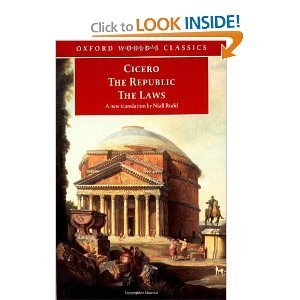Michael E. Newton's Blog, page 11
November 9, 2011
Europe is paying for its past excesses: European interest payments as % of GDP.
With interest rates rising in Europe and heavy debt-to-GDP ratios, I decided to look at how much interest each European country must pay going forward as a percentage of its economic output. I threw in the United States for fun. (Table sorted by interest payment %age of GDP.)
2-year interest rate
Debt-to-GDP
Interest payment %age of GDP
Greece
156.4%
Portugal
15.3%
Italy
8.5%
Ireland
5.9%
Belgium
2.9%
Spain
2.9%
France
1.1%
Great Britain
0.3%
Germany
0.3%
United States
0.2%
Now, these debt figures account only for federal government spending. Many countries, most notably the United States, also has state, provincial, and local governments with their own debts. Additionally, many of the debt-to-GDP estimates are from 2010. Thus, most of the above countries have debt-to-GDP ratios and interest expenses even worse than calculated above.
Clearly, we can see why Greece is in trouble. If it were to refinance its debt at market rates (it has been refinancing through Euro-zone subsidized loans), its interest payments would exceed its GDP by a half.
Italy is also paying for its problems. So far, Italy has received no help from any bailout fund and, as of now, will have to refinance its debt at market rates. As such, it will cost Italy 8.5% of its GDP to do so. If it had a more reasonable debt level and interest rates, say those of France, Italy would have an additional 7.4% of GDP to spend or save.
Most surprising is how everybody is ignoring Portugal. Portugal has already received bailout funds, but that won't last forever. If Portugal were to return to normal by accessing the market, interest payments would eat up 15.3% of its GDP. That's a lot to pay for past mistakes.
Belgium is another sleeper. It's problems are just as bad as Spain's, yet nobody is talking about them. Furthermore, Belgium has not been able to form a ruling coalition since elections were last held on June 13, 2010, breaking all records. Furthermore, the New Flemish Alliance party is Belgium's largest political party with 17% of the vote. This party favors the "peaceful and gradual secession of Flanders from Belgium." Lots of problems there, but nobody seems to be talking about it.
So far, Europe has paid for the mistakes of Greece, Portugal, and Ireland. However, Italy's debt is 2.7 times the combined debt of those three nations that are already receiving bailout funds. That makes Italy both too big to fail and too big to bail out.
Europe is facing problems on multiple fronts: Greece, Italy, Portugal, Ireland, Belgium, and Spain, to name a few. So far, Europe has successfully staved off depression by bailing out the smaller, weaker countries. But as the problem spreads to more countries, and bigger ones at that, Europe is running out of room and options.
– Michael E. Newton is the author of the highly acclaimed The Path to Tyranny: A History of Free Society's Descent into Tyranny. His newest book, Angry Mobs and Founding Fathers: The Fight for Control of the American Revolution, was released by Eleftheria Publishing in July.








Review of Ken Burns’ Prohibition
 Ken Burns’ newest documentary, Prohibition, is a great look at this very important but poorly understood national test of government’s ability to legislate morality. I found the movie absolutely fascinating, especially the first two parts (there are three parts), which was primarily about how Prohibition was enacted. Here are some interesting things I learned:
Ken Burns’ newest documentary, Prohibition, is a great look at this very important but poorly understood national test of government’s ability to legislate morality. I found the movie absolutely fascinating, especially the first two parts (there are three parts), which was primarily about how Prohibition was enacted. Here are some interesting things I learned:
School systems taught little children the evils of drinking. When those kids came of voting age, many voted for prohibition.
The leadership role taken by women’s group in passing and then repealing Prohibition.
Prohibition would never have been possible without the income tax amendment ratified in 1913. Prior to 1913, the federal government got much of its revenue from excise taxes on liquor. With the income tax, the government no longer needed that revenue stream and was willing to go along with Prohibition.
Anti-German sentiment during World War I helped push Prohibition because most of the beer brewers were owned by German immigrants.
While the documentary focuses on Prohibition, it also clearly reveals the dramatic political change that was taking place in the United States at the time: a switch from small-government republicanism to democratic progressivism.
I watched most of this series on my iPod while riding the NYC subway, so was unable to take notes. Therefore, I offer no full review. Hopefully, the interesting tidbits listed above will convince you that this documentary on Prohibition is worth watching.








Review of Ken Burns' Prohibition
 Ken Burns' newest documentary, Prohibition, is a great look at this very important but poorly understood national test of government's ability to legislate morality. I found the movie absolutely fascinating, especially the first two parts (there are three parts), which was primarily about how Prohibition was enacted. Here are some interesting things I learned:
Ken Burns' newest documentary, Prohibition, is a great look at this very important but poorly understood national test of government's ability to legislate morality. I found the movie absolutely fascinating, especially the first two parts (there are three parts), which was primarily about how Prohibition was enacted. Here are some interesting things I learned:
School systems taught little children the evils of drinking. When those kids came of voting age, many voted for prohibition.
The leadership role taken by women's group in passing and then repealing Prohibition.
Prohibition would never have been possible without the income tax amendment ratified in 1913. Prior to 1913, the federal government got much of its revenue from excise taxes on liquor. With the income tax, the government no longer needed that revenue stream and was willing to go along with Prohibition.
Anti-German sentiment during World War I helped push Prohibition because most of the beer brewers were owned by German immigrants.
While the documentary focuses on Prohibition, it also clearly reveals the dramatic political change that was taking place in the United States at the time: a switch from small-government republicanism to democratic progressivism.
I watched most of this series on my iPod while riding the NYC subway, so was unable to take notes. Therefore, I offer no full review. Hopefully, the interesting tidbits listed above will convince you that this documentary on Prohibition is worth watching.








November 8, 2011
Review of Cicero’s The Republic and The Law with some of my favorite quotes
The Republic and The Laws by
Marcus Tullius Cicero

I really enjoyed Cicero’s writing and insight into politics and government, but too much of Cicero’s Republic is missing to make it a compelling read. What parts do exist are reminiscent of Plato’s Republic, Aristotle’s Politics, and Polybius’s Histories and Cicero certainly built upon those sources. It is interesting to read what this great man who fought against Cataline, Julius Caesar, Mark Antony, and Octavian/Octavius/Augustus has to say on the topic. I certainly recommend Cicero’s Republic to anybody interested in Roman history or the history of political thought. However, to the more casual reader or those more generally interested in political thought, there is little benefit to reading this book if you already read or plan to read Plato, Aristotle, and Polybius. If we had all of Cicero’s Republic, I’d likely be giving it four or five stars, but it deserves only two or three stars as it exists to us today.
Turning to the second half of the book, The Laws, which appears to be more complete and thus easier to read and review, Cicero argues that laws come from nature, not men. Cicero explains, “Law was not thought up by the intelligence of human beings, not is it some kind of resolution passed by communities, but rather an eternal force which rules the world by the wisdom of its commands and prohibitions… That original and final law is the intelligence of God, who ordains or forbids everything by reason.” In this respect, I found sections of Cicero’s The Laws to be quite similar to Frederic Bastiat’s The Law.
Cicero explains that the Latin word for law, lex, comes from the word for choosing, lego. [Pages 103 and 125. But there is much uncertainty whether this is the actual etymology of the word law.] Thus, the book is primarily designed “to provide a code of living and a system of training for nations and individuals alike.”
Cicero then makes the case that “the highest good is either to live according to nature or to follow nature and live, so to speak, by her law.”
Cicero then describes Rome’s legal code and proposes some changes. This section is sometimes interesting from a historical perspective, but less so in terms of political philosophy. However, it becomes extremely tedious and dull at times when Cicero describes certain aspects of Rome’s laws in depth.
All in all, very insightful, though a bit tedious at times. But the worst aspect is the incongruous nature of the work because of all the missing text. I also wish the notes were put on the bottom of each page rather than in the back. I for one enjoy reading every note and found it difficult to flip back and forth four or five times per page.
In total, I am giving Cicero’s The Republic and The Laws just three stars (out of five). I am sure this would disappoint Cicero greatly, but I place little blame on him. If his writing existed in full, I’m sure he would easily earn four stars and possibly five, though Cicero himself admitted in The Laws that he could not compete with Plato’s writings on the same subject, which is why it would likely earn just four starts while Plato’s Republic and Aristotle’s Politics deserve five stars.
Some great quotes (besides those above) from the book:
History is “the witness of the times, the light of truth, the life of memory, the teacher of life, the messenger from the past.” [From De Oratore 2.36]
“You cannot start a history without setting free time aside; and it cannot be finished in a short period. Moreover, I tend to become confused if, after starting a project, I have to turn to something else. And it’s not so easy to pick up the threads again after breaking off as to take a thing through from start to finish.”
“Without that [authority], no house or state or clan can survive–no, nor the human race, nor the whole of nature, nor the very universe itself. For the universe obeys God; land and sea abide by the laws of the universe; and human life is subject to the commands of the supreme law.”
“Nothing is more damaging to a state, nothing so contrary to justice and law, nothing less appropriate to a civilized community, than to force through a measure by violence where a country has a settled and established constitution.”








Review of Cicero's The Republic and The Law with some of my favorite quotes
The Republic and The Laws by
Marcus Tullius Cicero

I really enjoyed Cicero's writing and insight into politics and government, but too much of Cicero's Republic is missing to make it a compelling read. What parts do exist are reminiscent of Plato's Republic, Aristotle's Politics, and Polybius's Histories and Cicero certainly built upon those sources. It is interesting to read what this great man who fought against Cataline, Julius Caesar, Mark Antony, and Octavian/Octavius/Augustus has to say on the topic. I certainly recommend Cicero's Republic to anybody interested in Roman history or the history of political thought. However, to the more casual reader or those more generally interested in political thought, there is little benefit to reading this book if you already read or plan to read Plato, Aristotle, and Polybius. If we had all of Cicero's Republic, I'd likely be giving it four or five stars, but it deserves only two or three stars as it exists to us today.
Turning to the second half of the book, The Laws, which appears to be more complete and thus easier to read and review, Cicero argues that laws come from nature, not men. Cicero explains, "Law was not thought up by the intelligence of human beings, not is it some kind of resolution passed by communities, but rather an eternal force which rules the world by the wisdom of its commands and prohibitions… That original and final law is the intelligence of God, who ordains or forbids everything by reason." In this respect, I found sections of Cicero's The Laws to be quite similar to Frederic Bastiat's The Law.
Cicero explains that the Latin word for law, lex, comes from the word for choosing, lego. [Pages 103 and 125. But there is much uncertainty whether this is the actual etymology of the word law.] Thus, the book is primarily designed "to provide a code of living and a system of training for nations and individuals alike."
Cicero then makes the case that "the highest good is either to live according to nature or to follow nature and live, so to speak, by her law."
Cicero then describes Rome's legal code and proposes some changes. This section is sometimes interesting from a historical perspective, but less so in terms of political philosophy. However, it becomes extremely tedious and dull at times when Cicero describes certain aspects of Rome's laws in depth.
All in all, very insightful, though a bit tedious at times. But the worst aspect is the incongruous nature of the work because of all the missing text. I also wish the notes were put on the bottom of each page rather than in the back. I for one enjoy reading every note and found it difficult to flip back and forth four or five times per page.
In total, I am giving Cicero's The Republic and The Laws just three stars (out of five). I am sure this would disappoint Cicero greatly, but I place little blame on him. If his writing existed in full, I'm sure he would easily earn four stars and possibly five, though Cicero himself admitted in The Laws that he could not compete with Plato's writings on the same subject, which is why it would likely earn just four starts while Plato's Republic and Aristotle's Politics deserve five stars.
Some great quotes (besides those above) from the book:
History is "the witness of the times, the light of truth, the life of memory, the teacher of life, the messenger from the past." [From De Oratore 2.36]
"You cannot start a history without setting free time aside; and it cannot be finished in a short period. Moreover, I tend to become confused if, after starting a project, I have to turn to something else. And it's not so easy to pick up the threads again after breaking off as to take a thing through from start to finish."
"Without that [authority], no house or state or clan can survive–no, nor the human race, nor the whole of nature, nor the very universe itself. For the universe obeys God; land and sea abide by the laws of the universe; and human life is subject to the commands of the supreme law."
"Nothing is more damaging to a state, nothing so contrary to justice and law, nothing less appropriate to a civilized community, than to force through a measure by violence where a country has a settled and established constitution."








November 7, 2011
Photos of the recently moved Hamilton Grange
On my recent trip to New York, I had the pleasure of visiting Hamilton Grange, the Harlem house built by Alexander Hamilton in 1802. I had visited the Grange before when it was located just a block away tucked in behind a church. It now sits in St. Nicholas Park, where its beauty shines.
In its new location, the inside of the Grange also looks much brighter and more colorful. The windows sport better views.
A statue of Alexander Hamilton with some quotes about his greatness still stands at the location where the Grange had previously stood.
I highly recommend a visit to Hamilton Grange if you live in New York City or planning a visit.








November 6, 2011
Writing a book is a marathon, not a sprint
I saw the last mile of the New York Marathon today on 59th Street. I was very moved to see all those dedicated and hard-working people accomplish their goals. It was also great to see all the friends, families, and complete strangers cheering them on.
However, we spectators near the finish line witnessed just the final mile of the marathon, which itself was just the final 26 miles of a much longer journey. Before the final race, the marathoner runs countless miles and hours alone. While many friends and family members support the marathoner on race day, fewer do so during the months of training and many think the marathoner is crazy for participating.
Authoring a book is much the same. When the book debuts, the author receives much congratulations and, God willing, rave reviews as well. But before that, the author works tirelessly, often in obscurity and with little support, for months or years researching, writing, re-writing, editing, and publishing the book.
After the marathon is over, the runner must maintain his health and fitness or the marathon will just be a footnote in his life. Similarly, an author who stops working on his book once it is published will see no long-lasting results. Like the marathoner who wishes to maintain the physical and psychological gains from all the training, the author has to work just as hard after the book is published as before. The author must promote, market, and publicize his book. He needs to write more for his audience in blogs, newspapers, magazines, and more books. (How many successful or famous authors can you name who wrote just one book?)
If you think that writing and selling a book is a sprint, you will quickly tired and give up. The author must be prepared for a never-ending marathon or writing, promoting, and marketing.
– Michael E. Newton is the author of the highly acclaimed The Path to Tyranny: A History of Free Society's Descent into Tyranny. His newest book, Angry Mobs and Founding Fathers: The Fight for Control of the American Revolution, was released by Eleftheria Publishing in July.








November 1, 2011
Photos of Occupy Wall Street at Zuccotti Park. Looks like a third-world tent city to me.
I was down at Zuccotti Park today where the Occupy Wall Street "protesters" have literally set up camp. I was shocked by what I saw. This does not appear to be some noble protest. Instead, it looked like a third-world tent city–one without privacy, running water, and sanitation–was dropped into the heart of our financial capital.




Also shocking were the restrictions around Wall Street. Vehicle traffic has been blocked on Wall Street and Broad Street in front of the stock exchange ever since 2001, but the barricades have recently been pushed far back for pedestrians as well, given them little space to walk.
Even the famous bull at Bowling Green at the base of Broadway has been cordoned off.
Even though Mayor Bloomberg has been sympathetic to the Occupy Wall Street protesters, he and the police are clearly worried about potential violence against these New York landmarks.
The most amazing thing is that you really cannot tell what these people are protesting for or against when you walk by. As you can see by the photos above, there were no banners or placards attacking Wall Street and no list of demands. Instead, to all appearances, it was just a lot of homeless people (whether by circumstance or by choice) who have set up camp in downtown Manhattan. While I know from the "news" that these are noble protesters seeking to right the wrongs of the world, but it certainly looked like a lot of homeless people in tents.
From the perspective of the average American, I cannot understand why anybody would care what these people believe, think, or want. It is a lot of unemployed people (again, whether by circumstance or by choice) who have completely failed in delivering their message, whatever that may be. Like their makeshift camp, the whole movement appears to be a disorganized mess that, in my humble opinion, should be cleaned up both from a standpoint of unsanitary conditions and poor political reasoning.
– Michael E. Newton is the author of the highly acclaimed The Path to Tyranny: A History of Free Society's Descent into Tyranny. His newest book, Angry Mobs and Founding Fathers: The Fight for Control of the American Revolution, was released by Eleftheria Publishing in July.








October 31, 2011
The evils of democracy and the mob: Quotes from some of the greatest minds in history.
Fisher Ames: "A democracy is a volcano, which conceals the fiery materials of its own destruction. These will produce an eruption, and carry desolation in their way."
John Jay: "Pure democracy, like pure rum, easily produces intoxication, and with it a thousand mad pranks and fooleries."
Lord Acton: "The one prevailing evil of democracy is the tyranny of the majority, or rather that party, not always the majority, that succeeds, by force or fraud, in carrying elections."
George Washington: "It is one of the evils of democratical governments, that the people, not always seeing and frequently misled, must often feel before they can act."
Alexander Hamilton: "If we incline too much to democracy, we shall soon shoot into a monarchy."
Alexander Hamilton: "Real liberty is neither found in despotism, nor in the extremes of democracy, but in moderate governments."
James Madison: "Where a majority are united by a common sentiment, and have an opportunity, the rights of the minor party become insecure."
James Madison: "Democracies have ever been spectacles of turbulence and contention; have ever been found incompatible with personal security or the rights of property; and have in general been as short in their lives as they have been violent in their deaths."
Alexis de Tocqueville: "The will of the nation is one of those phrases most widely abused by schemers and tyrants of all ages."
Cicero: "No tempest or conflagration, however great, is harder to quell than mob carried away by the novelty of power."
Cicero: "This excessive licence, which the anarchists think is the only true freedom, provides the stock, as it were, from which a tyrant grows."
Plato: "Is it not the excess and greed of this and the neglect of all other things that revolutionizes this constitution too and prepares the way for the necessity of a dictatorship?"
Plato: "And is it not true that in like manner a leader of the people who, getting control of a docile mob, does not withhold his hand from the shedding of tribal blood, but by the customary unjust accusations brings a citizen into court and assassinates him, blotting out a human life, and with unhallowed tongue and lips that have tasted kindred blood, banishes and slays and hints at the abolition of debts and the partition of lands."
Plato: "And a democracy, I suppose, comes into being when the poor, winning the victory, put to death some of the other party, drive out others, and grant the rest of the citizens an equal share in both citizenship and offices."
Plato called democracy "a delightful form of government, anarchic and motley, assigning a kind of equality indiscriminately to equals and unequals alike!"
Polybius: "And hence when by their foolish thirst for reputation they have created among the masses an appetite for gifts and the habit of receiving them, democracy in its turn is abolished and changes into a rule of force and violence. For the people, having grown accustomed to feed at the expense of others and to depend for their livelihood on the property of others, as soon as they find a leader who is enterprising but is excluded from the houses of office by his penury, institute the rule of violence; and now uniting their forces massacre, banish, and plunder, until they degenerate again into perfect savages and find once more a master and monarch."
 [image error]
[image error]

 [image error]
[image error]



The evil trinity of big government: media, public schools, and government bureaucracy
With Occupy Wall Street in the news, the decline of the American economy and competitiveness, and our growing indebtedness as individuals and a nation, I have been thinking a lot the causes of our current "unequivocal experience." [Hamilton, Federalist No. 1] Or as Hamilton wrote in Federalist No. 15, "We may indeed with propriety be said to have reached almost the last stage of national humiliation. There is scarcely anything that can wound the pride or degrade the character of an independent nation which we do not experience."
For those who read this blog, my tweets, or my books, you already know that I firmly believe that all problems in government can be traced to the people. No government can stand long without the support–or lack of opposition–from the people, as Hamilton points out in Federalist No. 21 and Madison in Federalists No. 28 and 44.
The question then is not why the government has grown, but why the people have encouraged or allowed its growth from under ten percent of GDP to over forty percent over the past century.
Quite a while ago I came to the conclusion–and I'm sure I'm not alone in this opinion–that there is an evil trinity promoting big government.
The media: The print and television media has long been controlled by the left. Only with the emergence of Fox News and talk radio has the right gotten a voice. The Internet has also helped expanded "alternative" viewpoints. Nevertheless, the left still has a dominant market share among casual listeners/viewers/readers. The media has an innate interest in promoting government. The media's job is to find a problem or crisis and blow it out of proportions to get ratings. On top of that, a story gets even more traction if there is somebody to blame. Who to blame? Well, you certainly cannot blame your customers, even if they are responsible. So, the media blames big corporations, the government, or foreign nations. If they blame a foreign nation, obviously it is the government's job to protect us from these foreign attacks. If they blame a big corporation, only the government is large enough and powerful enough to rein them in. If they blame the government, they suggest, promote, or demand that the government do more next time to prevent its own mistakes. (Think about government stimulus, which the media says failed only because it was not big enough.)
Public education system: Most Americans received the majority of their education from the public school system. Public schools teach nearly 100% of K-12 students. Even in college, many universities are public with tuition subsidized by the states. On top of that, the federal government subsidizes student loans to private universities, which creates all sorts of market distortions. Public school administrators and teachers alike receive their paychecks from the government. They have chosen to work for government and most of them, by choice or mandate, join the teachers union. These teachers and administrators are brainwashed by unions and government education departments and then brainwash their own students to believe those same ideals. When election time comes, they turn out in droves and convince parents through phone calls (I received one the other day) and PTA activities to vote for their candidates and to approve propositions to increase their funding.
Government bureaucracy: Currently, seventeen percent of American jobs are in the government sector. On top of that, as I write in The Path to Tyranny , "these employment figures do not include all the jobs created by the 529 billion dollars worth of contracts given out by the federal government each year, two-thirds of which were for defense programs. As of 2006, government contracts to private defense companies employed an additional 1.4 million people." Just like the teachers and school administrators above, these people want to keep their jobs and generally believe that they are doing more good than bad for the country.
With such a large percentage of Americans working for the government, either directly or through public schools, with the media's influence on the American mind, and the public school system's stranglehold on our children's education, the left has been able to advance their agenda with little opposition. There should be little doubt as to why government's size has more than quadrupled in the last hundred years and now eats up almost half of our GDP (with the cost of regulation added on top of that).
A fourth group may possibly be included: welfare recipients. Back in 2009, I wrote about this in The Path to Tyranny, but the situation has worsened since then. Here is what I wrote then:
In the first quarter of 2009, Social Security, Medicare, welfare, and other benefits provided by the government accounted for 16.2 percent of all personal income, a record high. Americans have become dependent on the government, something the Founders did not intend. After paying tens or hundreds of thousands of dollars into Social Security and Medicare, only the very rich would be able forego the benefits promised them. Every election, retirees and people approaching retirement vote for candidates who promise not to touch their retirement or health care programs. This has made fixing the structural problems behind these programs virtually impossible, but it has accomplished the goal of modern liberals and socialists of making Americans dependent on the government.
Nevertheless, I do not include these welfare/benefit recipients because they are people from all walks of life who do not represent a singular group. Though they certainly skew elections and public sentiment, there is no way to infiltrate, attack, and convince them as a group; we can only do so as individuals. The other three are institutions influencing government; this one is a loose collection of individuals. The left uses the apparatus of the left within the media, public education, and government bureaucracy to influence others. In contrast, those dependent on government are a symptom of big government more than a cause, though they certainly seek to maintain their benefits and this makes shrinking government more difficult. But these people do not necessarily promote big government. In fact, many oppose government's actions to increase welfare because it may threaten their own benefits. Thus, welfare/benefit recipients are not including among my evil trinity.
Topic to be continued…




 [image error]
[image error]













